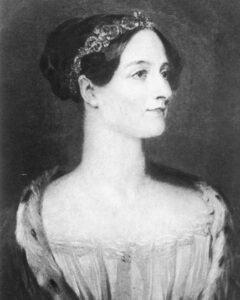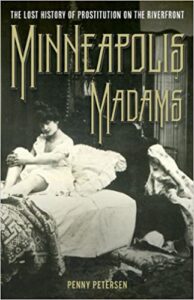Women’s History Month occurs in March every year, with International Women’s Day occurring on March 7th. Starting with the passage of Pub. L. 97-28 by Congress in 1981, the celebration started as Women’s history week with the said week starting on March 7th. Within a few years, the passage of Pub. L. 100-9 changed this celebration to the entire month and continued to go through various legislative activities to the current understanding of Women’s History Month. As recognition of women’s contributions to history, it has continued in importance in looking at our present and future.
One figure to study in women’s history is Ada Lovelace. Ada Lovelace was a mathematician and a major contributor to the field of computer science. Noted often as the first computer programmer, she worked on a prototype of a digital computer in 1843. She explained how the Analytical Engine, or the computer prototype, could annotate and compute certain numbers. This basis has allowed for computer science to grow, as a major and created a place for women within the field early on. One of the first programming languages is named Ada in recognition of her work, and she has a dedicated day to her and other women in STEM’s contribution to the field, denoted as Ada Lovelace Day, on the second Tuesday of October.
Gustavus offers plenty of opportunities to engage with women’s history at Gustavus, and other programs that intersect such as the Gender, Women, and Sexuality Studies department provide a holistic viewpoint of women in history. Opportunities to engage come at varying levels, offering both level 100 and level 200 courses. Aviva Meyerhoff, an Environmental Studies and Geography double major, noted that “History courses at Gustavus have taught me that history is not past, but something that surrounds us in our daily lives. In Women in the US, I was struck by how much, in fact, history does repeat itself, reading about women from the early suffrage movement contending with the same systems of oppression that are still fought today, namely sexism and white supremacy. I think women’s history allows us to celebrate the progress that has been made, as well as recognize this is a continuous journey that is still unfolding.” Some other relevant and regularly taught courses include HIS 226: European Women or HIS 238 Gender and Sexuality in the United States. Furthermore, history classes tend to include women no matter the overall theme, meaning that women’s history can be found throughout the catalog. As students plan for the fall semester, they can find lots of ways to engage in this critical subject.
However, as the semester progresses and the summer comes closer and closer, many who are not currently enrolled in a class may find it harder to engage, but Gustavus offers plenty for these students as well. Dr. Misti Harper, a professor in the history department with expertise in the subject, provides a list of books to look into. While this list is not exhaustive in great books on women’s history, it shows the varying facets of history that can be found in this subject and provides a great start. Recommended are How We Get Free: Black Feminism and the Combahee River Collective by Keeanga-Yamahtta Taylor; Fighting Fascism: How to Struggle and Win by Clara Zetkin; The Birth of the Pill by Jonathan Eig; Minneapolis Madams: The Lost History of Prostitution on the RiverFront by Penny. A. Petersen; Charity and Sylvia: A Same-Sex Marriage in Early America by Rachel Hope Cleves; The Abortionist: A Woman Against the Law by Rickie Solinger; #NotYourPrincess: Voices of Native American Women by Lisa Charleyboy and Mary Beth Leatherdale; The Secret History of Wonder Woman by Jill Lepore; Heartbeat of Struggle: The Revolutionary Life of Yuri Kochiyama by Diane Carol Fujino; and Sex with the Queen: 900 Years of Vile Kings, Virile Lovers, and Passionate Politics by Eleanor Herman. Luckily, all of these can be found through the Gustavus library, either on the shelves or through InterLibrary Loans, as well as some being offered in eBook formatting for those who are not on campus.
Critically, women’s history does not have to be just something to focus on for 31 days. There are many ways to expand your knowledge on women’s history and understanding. Read books, watch documentaries, go to classes or talks. History is critical to our present, and so is women’s history, both in your time at Gustavus and past it.
This blog was written by Kelsey Walock who is a History and Political Science double major, class of 2023.

